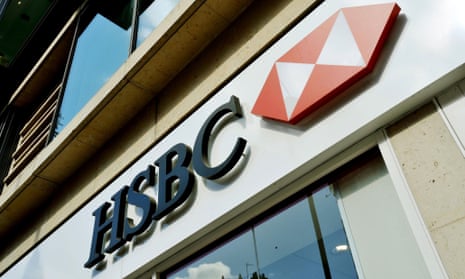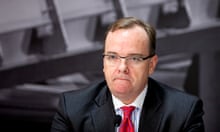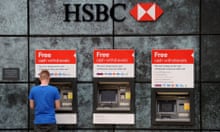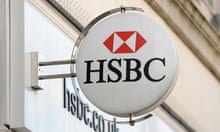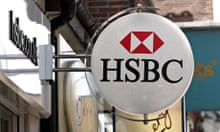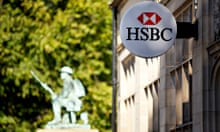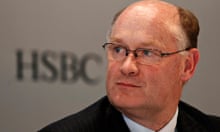Two directors of HSBC’s UK bank are poised to quit in protest at new Bank of England rules that could make directors and top executives criminally liable if a bank fails.
Alan Thomson, who is on the audit and risk committees of HSBC Bank plc will leave this month; John Trueman the UK operation’s deputy chairman, plans to resign soon, Sky News reported.
Their departures are said to be linked to proposals by the Prudential Regulation Authority (PRA), the Bank of England’s regulatory division, to make senior bankers more accountable.
HSBC will file a notice about Thomson’s resignation with Companies House this month, with Trueman’s following later if he confirms he is leaving.
The PRA is seeking opinions this month on rule changes that would make bank bosses liable if they take reckless decisions that cause the bank to collapse.
Thomson and Trueman are said to have reconsidered their jobs after they were briefed by HSBC compliance officers after the PRA’s announcement of its proposals in July. Thomson cited his other commitments, which include chairing Hays, the recruitment company, as another reason for resigning.
Trueman has been a director of HSBC Bank for 10 years and was an investment banker before that. Thomson, a former finance director at Smiths Group, the engineering company, joined HSBC’s UK board in December.
The PRA’s paper, published jointly with the Financial Conduct Authority (FCA), proposed a “senior managers’ regime” with powers to jail top bankers for up to seven years for reckless misconduct. Board directors and top executives would be given clear responsibilities and would have to prove they were not aware of or had challenged improper behaviour at the time.
The parliamentary commission on banking standards recommended a criminal offence of reckless conduct when it reported last year. Its findings reflected widespread anger that no top bankers have been charged or imprisoned for actions that made them rich but brought the economy close to collapse.
Andrew Tyrie, who chaired the commission, was unfazed by the expected departures at HSBC.
“The crisis showed that there must be much greater individual responsibility in banking. A buck that does not stop with an individual often stops nowhere. The new senior managers regime will require banks to identify who is responsible for what at the very top. Implementation will require banks and regulators to exercise their judgment.”
A lawyer at a top City firm said the departures at HSBC were not a surprise as there was concern about potential sanctions against bank directors. But he said the threat of criminal action would remain remote if the rules were introduced.
“Criminal liability is only incurred if knowledge can be demonstrated. If you’re a more or less diligent director paying attention, you don’t need to think: ‘Oh my God, I’m in grave danger’,” said the lawyer, who spoke to the Guardian on condition of anonymity.
A new standard of care introduced by the FCA is a greater threat to bank directors than the chance of criminal charges because it gives the regulator a great deal of flexibility to decide what to punish, the lawyer added.
Banks are complaining that the post-crisis regulatory clampdown has gone too far by stifling their ability to lend and deterring candidates from joining their boards. But the banks’ critics accuse them of lobbying to escape the consequences of actions that caused the financial meltdown.
